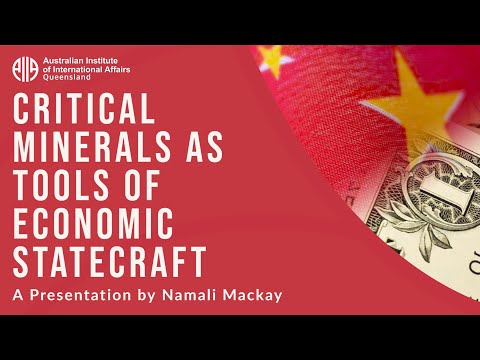August 16, 2023, 3:17 am
Join us either in-person or online as Managing Director of Critical Minerals Association Australia, Namali Mackay, discusses the geopolitics of critical minerals and the need for supply chains to remain resilient to ensure the longevity of an industry crucial for our energy future and global supply.
Critical minerals have been making the headlines as Western and allied nations race to increase their sovereign capability and secure their downstream manufacturing sectors’ needs. The ‘criticality’ of metals and mineral varies from country to country based on a nation’s industrial, defence and economic strategies. Sudden supply shocks and geopolitical disturbances can swiftly shift the criticality of a commodity.
Critical mineral supply chains, from mine to end-product, are vulnerable to supply chain disruptions due to heavy monopolisation, particularly in the midstream processing and refining space. As a result, both the miners and the manufacturers are reliant on China for a steady supply of refined critical materials. China’s export ban on rare earths to Japan following a political dispute was one example of how vulnerable many nations are to securing critical minerals for end products such as electric vehicles, phones, and wind turbines that our society and economies are now relying on. Australia plays an important role in this geopolitical puzzle – containing almost all the critical minerals required for future technologies. Australia’s approach to supporting its critical minerals industry will shape not only our new energy future but also have a significant impact on the world’s supply.
Content Creator – Australian Institute of International Affairs


